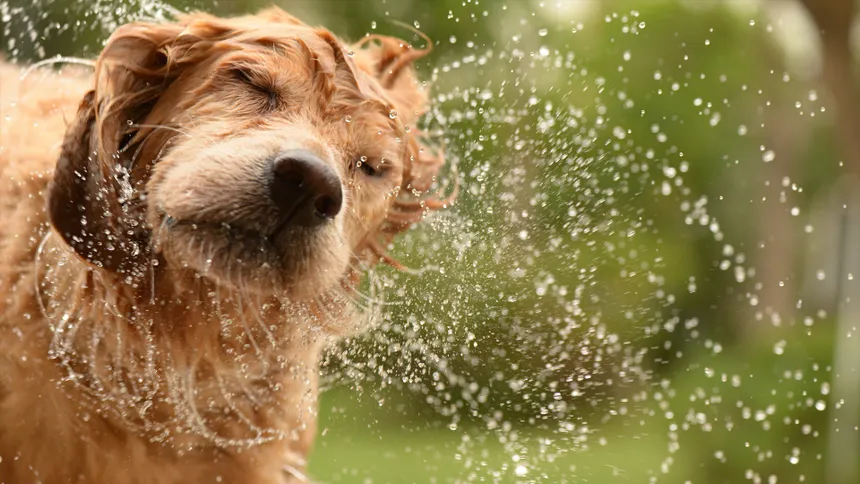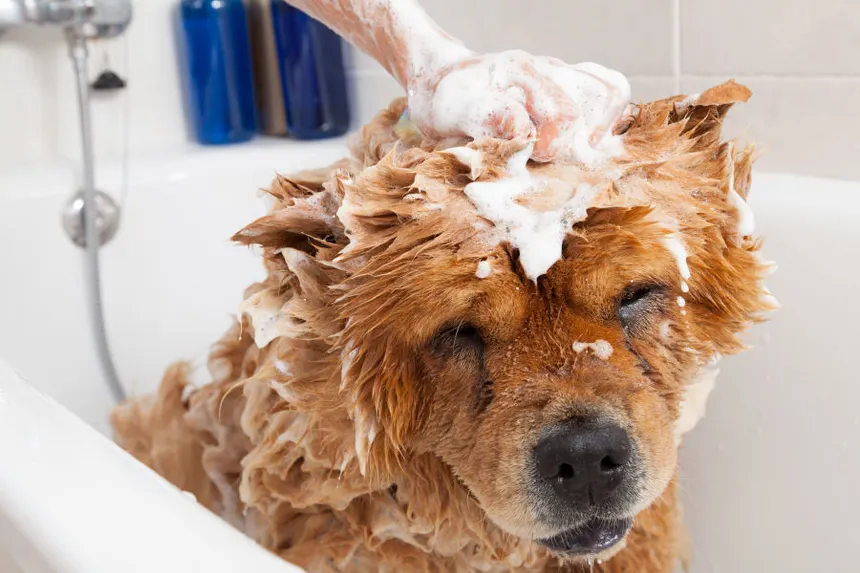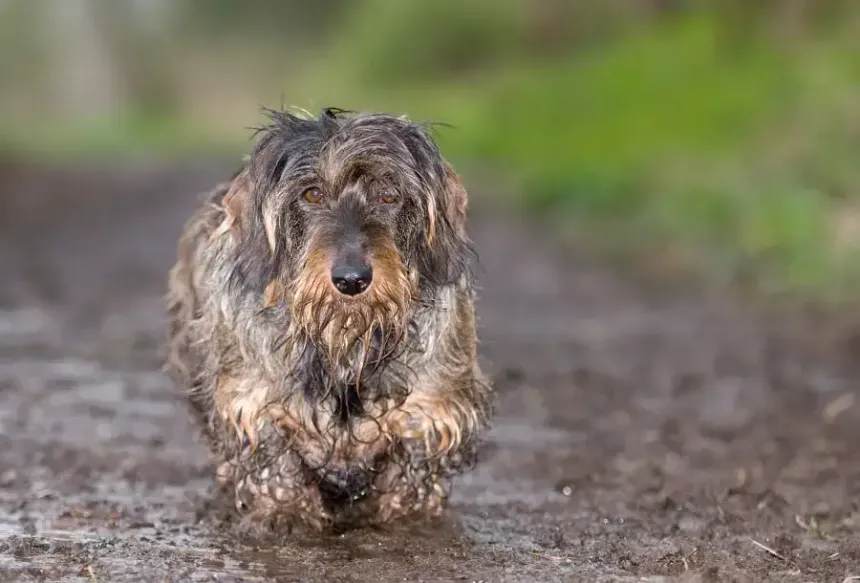If your dog smells bad even after grooming, it’s likely due to underlying issues like skin infections, dental problems, anal gland buildup, or environmental factors. Grooming alone won’t resolve medical or hygiene-related causes — a comprehensive approach including veterinary care, proper grooming techniques, and lifestyle adjustments is essential.
Dog Odor After Bath: What You’re Not Being Told

Grooming should leave your dog fresh and clean — so why does your pup still stink after a bath?
Here’s what you need to know:
- Grooming addresses surface-level dirt and smells, but not always deeper problems.
- Persistent odor is usually a sign of underlying health or hygiene issues.
- Odor can also return quickly due to environment, owner habits, or breed-specific concerns.
Wondering how to get rid of dog smell without a bath? It starts with identifying the root cause — not just masking it.
At Careers Collectiv, we’ve helped pet owners understand that grooming is just part of a broader hygiene ecosystem. Let’s dive deeper.
Understanding the Causes of Persistent Dog Odor
Dog Skin Infections
Bacteria or yeast can colonise your dog’s skin, especially in moist, warm areas (armpits, groin, skin folds).
- Symptoms: Redness, itching, greasy coat, musty smell
- Causes: Allergies, poor grooming, excessive licking or scratching
- Treatment: Antifungal/antibacterial shampoos, prescription meds
Anal Gland Issues
These small scent glands near your dog’s anus can become full or infected.
- Tell-tale sign: A fishy or metallic smell that lingers even after bathing
- Other signs: Scooting, licking rear end, swelling
- Solution: Have a groomer or vet express the glands regularly
Dental Problems in Dogs
Dental disease causes bad breath that can spread through fur, especially around the face and neck.
- Causes: Tartar buildup, gingivitis, infected teeth
- Check: Open your dog’s mouth — does it smell like decay?
- Fix: Brush teeth regularly, offer dental chews, schedule vet cleanings
Ear Infections
Yeast and bacteria thrive in ears, especially in floppy-eared breeds.
- Symptoms: Smelly, waxy discharge; head shaking; ear scratching
- Breed prone: Basset Hounds, Cocker Spaniels, Labradoodles
- Prevention: Weekly ear cleaning with a vet-approved solution
Improper Dog Grooming Practices

Importance of Drying Dog Fur Completely
A damp dog is a breeding ground for bacteria.
- Why it matters: Water trapped in undercoats or skin folds creates musty smells
- What to do: Use a high-velocity dryer after baths; avoid letting your dog air-dry indoors
Dog Grooming Mistakes to Avoid
- Using human shampoo — throws off skin pH
- Overbathing — strips natural oils, worsens skin conditions
- Neglecting undercoat removal — traps odor-causing debris
Bathing Frequency for Dogs
- Short-haired breeds: Every 6–8 weeks
- Double-coated or long-haired breeds: Every 4–6 weeks
- Skin issues/allergies: As directed by a vet
How Climate and Environment Affect Dog Smell

Impact of Climate on Dog Odor
- Humidity: Moist environments encourage bacteria and yeast growth
- Heat: Dogs sweat through paws — warm weather can enhance odors
- Cold/dry air: May reduce odor but dry out skin, causing dandruff (which smells musty)
Effects of Outdoor Activities on Dog Smell
- Rolling in grass, mud, dead animals: Traps odor in fur
- Exposure to pollutants: Urban dogs often carry car fumes, chemicals on coat
- Solution: Rinse off after walks, even without shampoo
Humidity and Dog Odor
Think of your dog’s coat like a sponge — high humidity means more moisture trapped in fur.
- High humidity = longer drying times
- Bacteria flourish in damp environments
Odor Issues in Long-Haired Dogs

Breed-Specific Grooming Needs
Each breed has its own odor challenges:
- Basset Hound: Naturally oily skin and floppy ears
- Shih Tzu, Maltese: Long facial hair soaks up food and saliva
- Golden Retrievers: Double coats trap water, dirt, and bacteria
Double-Coated Breeds and Odor
- Problem: Undercoat matting traps debris and moisture
- Fix: Use undercoat rakes; schedule deshedding sessions
- Recommended: Professional groom every 6–8 weeks
Hypoallergenic Dog Breeds
Even low-shedding breeds like Poodles and Bichons can smell bad if not properly groomed.
- Why: Dense curly fur traps odor near skin
- What helps: Regular clipping, ear cleaning, brushing
How Your Habits May Be Making It Worse
Owner Routines That Contribute to Odor
- Letting dogs sleep in bed: Traps skin oils and odor in bedding
- Skipping daily brushing: Loose fur = more bacteria and odor
- Not cleaning food/water bowls: Mold or bacteria can transfer to mouth and fur
Home Hygiene Matters
- Unwashed blankets or beds: Dogs absorb odors from fabric
- Dirty floors/carpets: Pick up smells and bacteria on paws and bellies
- Poor ventilation: Odors build up in stagnant air
Preventative Grooming Tips and Best Practices
Regular Dental Care for Dogs
- Brush with dog toothpaste 2–3 times per week
- Use vet-approved dental chews and water additives
- Annual professional dental cleanings
Ear Cleaning Routines
- Weekly ear checks for wax, odor, discharge
- Clean with vet-recommended solutions
- Dry thoroughly after swimming or bathing
Proper Diet for Dogs
- Poor diet = poor coat = more odor
- Look for high-protein, low-carb, omega-3-rich foods
- Avoid filler-heavy kibble (corn, soy, byproducts)
Dog Hygiene Maintenance
- Wipe paws after outdoor time
- Clean rear end after bathroom
- Use pet-safe wipes between baths
When You Should Consult a Vet
Signs of Serious Health Issues in Dogs
- Odor doesn’t improve after grooming
- Dog constantly licks, scratches, or scoots
- Sores, bald spots, redness
Veterinary Advice for Persistent Dog Odor
- Skin scrapings for infections
- Bloodwork to rule out internal issues
- Allergy testing
Professional Dog Health Assessment
Don’t wait too long — persistent odor is not normal and can signal:
- Chronic infections
- Digestive disorders
- Hormonal imbalances (thyroid, adrenal glands)
Getting Rid of Persistent Dog Smell for Good
Fixing dog odor requires more than a bath. To truly eliminate smells:
- Identify the root cause — medical, environmental, or grooming-related
- Make hygiene part of your daily pet care routine
- Work with professionals — vets, groomers, nutritionists
At Careers Collectiv, we believe your dog should feel as clean and healthy as they look. Odor is your dog’s way of telling you something’s off — listen closely and act early.